Fast Facts
Location
Commencing
- Townsville: January
Fees
$8,948.00+
+estimated annual Commonwealth Supported Fee for a full-time study load
Plus Student Services and Amenities fee
Fee deferral and scholarships available if eligible
Duration
3 years full-time
Entry Requirements
ATAR 65
English (Units 3/4,C)
Recommended Knowledge
Mathematical Methods (Units 3/4,C), Chemistry (Units 3/4,C); plus one of Biology, Health, Physical Education or Physics
QTAC Codes
- 316071
Course detail
Discover where you excel in the medical, healthcare, clinical and research industries with a Bachelor of Biomedical Sciences. JCU’s unique course design equips you to explore multiple fields and embrace a career that’s right for you.
With only one prerequisite, English, JCU’s Bachelor of Biomedical Sciences is designed differently. We recognise that the most important prerequisite for the biomedical field is an enduring interest in expanding your learning and a commitment to helping others. Engage with foundational learning in chemistry, physics and genetics, no matter what you studied in high school.
Design the first-year program that supports you to expand your existing knowledge. Foundational subjects in chemistry and mathematics are available to students who did not complete these in secondary school. Students that already hold this assumed knowledge can explore subject offerings in bioinformatics, veterinary science, healthcare communication or general health.
Examine the wide-ranging subject areas of biomedicine in your second year and take the opportunity to explore subject areas that interest you. This broad knowledge and skill base equips you to select the major that best aligns with your study, career or research goals from your third year. Explore the majors available within the Bachelor of Biomedical Sciences in more detail below.
Biomedicine is a diverse and flexible field of study. Multiple transfer points and focused majors empower you to specialise in the career of your choice sooner. JCU is committed to equipping you with the knowledge and skills to excel across the healthcare sphere.
Engage with hands-on learning opportunities from your first year. You’ll benefit from the expertise of lecturers and industry experts as you develop valuable work skills in state-of-the-art laboratories, hospitals, and medical centres, both on- and off-campus. JCU’s small class sizes provide you with additional opportunities for personalised learning and tailored support.
JCU’s unique focus on tropical health and disease management will ensure a hands-on, practical learning experience like no other.
This flexible degree will set you on a pathway to finding the area of healthcare you are truly committed to. A Bachelor of Biomedical Sciences can act as that key springboard into a medical-related career.
View the Handbook for a detailed overview of available subjects.
Inherent requirements
Inherent requirements are the identified abilities, attributes, skills, and behaviours that must be demonstrated, during the learning experience, to successfully complete a course. These abilities, attributes, skills, and behaviours preserve the academic integrity of the University’s learning, assessment, and accreditation processes, and where applicable, meet the standards of a profession. For more information please review the inherent requirements for the Bachelor of Biomedical Sciences.
Majors
Choose from six different majors, each designed to provide you with the knowledge and skills required to specialise in key biomedical fields. All majors are offered on-campus at JCU Townsville.
Bioinformatics
Hone the skills to collect, understand and apply biological and medical data. Understand how data is managed in the medical and healthcare fields and contribute innovative solutions to complex problems. Build expertise in this rapidly expanding field that has clinical, research, and governmental applications.
Health
Be equipped for a future in the medical, dental or allied health industries. Develop an advanced understanding of anatomy, physiology and pathophysiology. Use this major as your starting point to build the foundational knowledge required to excel in the health service industries.
Medical Laboratory Science
Be at the forefront of healthcare research and diagnostics and develop extensive theoretical and medical knowledge across several fields of medical science. You will gain hands-on clinical and laboratory skills with placement opportunities and training in world-class diagnostic medical laboratories and research centres.
Explore Medical Laboratory Science
Microbiology and Immunology
Gain the skills and knowledge in the theories of epidemiology, molecular genetics, microbiology and advanced immunobiology. Extend your knowledge by understanding and analysing the theories of infectious diseases and tropical microbes.
Explore Microbiology and Immunology
Molecular and Cell Biology
Study biology at the molecular and cellular level as you explore the origins of specific diseases and disorders. Develop knowledge and skills in the fields of cell biology, genetics, immunology and bioengineering.
Explore Molecular and Cell Biology
Physiology and Pharmacology
Gain the knowledge and skills to understand and apply pathophysiology and therapeutics theory. Understand how pharmacological treatments can influence the human body's signals, responses and regulation, equipping you to excel in numerous pharmacology roles.
Honours
If you're a high-achieving student you may be offered the opportunity to study for a Bachelor of Biomedical Sciences (Honours) degree. This consists of extra study and the development of a personal research project and thesis. An Honours degree is usually required for entry to research higher degrees.
Refer to the Bachelor of Biomedical Sciences (Honours) Handbook to learn more. Complete an application through our Online Application Portal.
The expert design of the Bachelor of Biomedical Sciences prepares you to for a variety of careers across industries including medicine, veterinary science, biosecurity, pharmaceuticals, research, clinical sciences and more.
JCU graduates are highly valued for their extensive practical skills, developed through varied hands-on learning opportunities. Enter the workforce with a detailed understanding of the daily operations of your chosen industry.
Benefit from the opportunity to work closely with academics and industry leaders. You’ll build a network of contacts that can assist you in developing an exciting and varied career in industries ripe for growth.
Discover just how far a career in Biomedical Science can take you. At JCU, our focus on empowering rural and regional communities within the Tropics provides unique opportunities for practical experience, many of which lead to employment after graduation.
Entry score threshold
These are the lowest adjusted scores we made an offer to in Semester 1, 2023. Entry scores are based on the most recent Semester 1 intake and are updated in June each year. Meeting the threshold doesn't guarantee admission.
ATAR/Selection Rank: 65.40
Entry score range
This table shows the range of entry scores for recent secondary students offered a place in the Bachelor of Biomedical Sciences for Semester 1, 2023. The table includes offers deferred to Semester 1, 2023 which may have been assessed using the entry score threshold of an earlier year.
JCU Townsville
Without adjustments | With adjustments* | |
|---|---|---|
Highest | 99.85 | 99.95 |
Median | 87.40 | 95.45 |
Lowest | 67.60 | 75.60 |
Notes:
<5 – indicates less than 5 ATAR-based offers made.
* Refer to Adjustment Factors
Find out more about who you might study with by viewing this course’s student profile.
Adjustment factors
James Cook University applies bonus ranks under the Regional Preference Scheme and QTAC’s Educational Access Scheme (EAS). Learn more about JCU’s adjustment factors.
Handbook year | Information valid for students commencing in 2024 |
Course code | 116910 |
Course type | Bachelor Degree (AQF Level 7) |
Owner | Academy |
College | Public Health, Medical and Veterinary Sciences |
Award Requirements
Admission Requirements
Course pre-requisites | English (Units 3/4,C); Recommended Knowledge: Mathematical Methods (Units 3/4,C), Chemistry (Units 3/4,C); plus one of Biology, Health, Physical Education or Physics |
Minimum English language proficiency requirements | Applicants of non-English speaking backgrounds must meet the English language proficiency requirements of Band 2 – Schedule II of the JCU Admissions Policy. |
Additional selection requirements | Information published by JCU or otherwise made available to students when applying, may specify additional criteria to be considered in ranking applicants in order of merit if the number of applications exceeds a quota or other limit on the places made available for the course. Information provided by applicants during the application process and any other information obtained by JCU in the application process may be used by JCU to rank applicants in order of merit by reference to those additional criteria. |
Post-admission requirements | This course may have specific admission requirements such as immunisation, a Suitability to Work with Children card, a federal police check and/or other conditions that students must comply with. Students must complete all professional experience placement requirements by the prescribed deadlines and maintain currency of these requirements in order to stay admitted in the course.
You will find your course requirements here: |
Academic Requirements for Course Completion
Credit points | 72 credit points as per course structure |
Course learning outcomes | On successful completion of Bachelor of Biomedical Sciences, graduates will be able to:
|
Inherent Requirements
Inherent Requirements | Inherent requirements are the identified abilities, attributes, skills, and behaviours that must be demonstrated, during the learning experience, to successfully complete a course. These abilities, attributes, skills, and behaviours preserve the academic integrity of the University's learning, assessment, and accreditation processes, and where applicable, meet the standards of a profession. For more information please visit: Bachelor of Biomedical Sciences. |
Reasonable adjustments | All JCU students have the opportunity to demonstrate, with reasonable adjustments where applicable, the inherent requirements for their course. For more information please visit: Student Disability Policy and Procedure. |
Course Structure
CORE SUBJECTS
Year 1
Trimester 1
BM1110:03 Molecules to Microbes
CH1020:03 Preparatory Chemistry or 3 credit points of subjects from List 1 (if Chemistry recommended knowledge has been met)
MA1020:03 Preparatory Mathematics or 3 credit points of subjects from List 1 (if Mathematics Methods recommended knowledge has been met)
Trimester 2
CH1001:03 Chemistry: A Central Science
BM1210:03 Structure to Function: Cells to Systems
BM1201:03 Energy Metabolism: Powering Life
Trimester 3
BM1300:03 Genes and Health
BM1310:03 Structure to Function: Control and Movement
SC1102:03 Modelling Natural Systems or SC1109:03 Modelling Natural Systems-Advanced
List 1
Health
HS1401:03 Health and Healthcare in Australia
BM1111:03 Introduction to Health Sciences
RH1002:03 Communication for Healthcare Professionals
SC1101:03 Science, Technology and Truth
Veterinary Science
TV1101:03 Introduction to Veterinary Science
BS1007:03 Introduction to Biodiversity
Bioinformatics
CP1401:03 Programming I
BM1111:03 Introduction to Health Sciences
MA1000:03 Mathematical Foundations
Year 2
Trimester 1
BM2110:03 Physiology 1: Growth and Movement
BM2120:03 Microbial Diversity
SC2202:03 Quantitative Methods in Science or SC2209:03 Quantitative Methods in Science Advanced or HS2402 :03 Health Professional Research 1
Trimester 2
BM2210:03 Physiology 2: Powering Life
BM2220:03 Infection and Immunity
BM2230:03 DNA: From Start to Stop
Year 3
Trimester 3
BM3332:03 Advanced Projects in Biomedicine
PLUS
Select a major from Table A
TABLE A (Majors)
Type of major | Mandatory, Single |
Credit points in major | 24 credit points |
Major | Available at | Notes |
JCU Townsville | ||
JCU Townsville | ||
JCU Townsville | ||
JCU Townsville | ||
JCU Townsville | ||
JCU Townsville |
Location
COURSE AVAILABLE AT | NOTES |
JCU Townsville |
Candidature
Expected time to complete | 3 years full-time or equivalent part-time |
Maximum time to complete | 7 years |
Maximum leave of absence | 1 year |
Progression
Course progression | Students who have not met Chemistry and or Mathematics Assumed Knowledge Course Pre-requisites must enrol in CH1020 and or MA1020 in Trimester 1 of their first year of study |
Course includes mandatory professional placement(s) | No
|
Special assessment | Nil |
Professional accreditation | Nil |
Supplementary exam for | Not applicable |
Credit
Eligibility | Students may apply for credit transfer for previous tertiary study in accordance with the Credit Transfer Procedure |
Maximum allowed | 48 credit points |
Currency | Credit will be granted only for subjects completed in the 10 years prior to the commencement of this course |
Expiry | Credit gained for any subject shall be cancelled 17 years after the date of the examination upon which the credit is based if, by then, the student has not completed this course |
Other restrictions | A maximum of 9 credit points of credit may be granted at level 3 |
Award Details
Award title | BACHELOR OF BIOMEDICAL SCIENCES |
Approved abbreviation | BBiomedSc |
Inclusion of majors on | Any major may appear on the testamur |
Exit with lesser award | Students who have completed 24 credit points of their course award requirements, and withdraw from or fail to meet the requirements for progression in the later years, may be eligible for the award of Diploma of Tertiary Studies. Students who have completed 48 credit points of their professional course award requirements, and withdraw from or fail to meet the requirements for progression in the later years, may be eligible for the award of Associate Degree of Health Sciences. |
Course articulation | Not applicable |
| Special awards | Students may receive an Award of Recognition in accordance with the Recognition of Academic Excellence Procedure |
Honours
Honours availability | Available as a separate graduate entry course |
Eligibility | Students must satisfy the College requirements relating to the standard of academic achievement necessary to proceed to the honours degree |
Estimated annual Commonwealth Supported fee: $AUD8,948.00
A Student Services and Amenities fee is payable per subject up to a maximum amount per year.
A variety of Scholarships are available to suit different student types.
JCU Prep provides a pathway into this course. Enrolling in this flexible program will enable you to meet entry requirements including subject pre-requisites and ATARs. Introductory academic subjects are also available to prepare you for tertiary study.
*Excludes entry into the Bachelor of Advanced Science, Bachelor of Dental Surgery, Bachelor of Laws, Bachelor of Marine Science, Bachelor of Medicine, Bachelor of Surgery, Bachelor of Nursing Science – Bachelor of Midwifery, Bachelor of Pharmacy (Honours), Bachelor of Physiotherapy, and Bachelor of Veterinary Science (Honours).
Note the course QTAC code for the location you've chosen. You'll need to enter it as part of your QTAC application.
Application dates vary between courses, whether they're delivered in semester, trimester or carousel study modes. View our Application due dates page for more information.
ATAR score is indicative only. Entry scores will be finalised in the major offer round.
Real stories
-
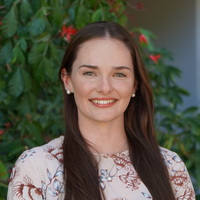
Student
Jessica Scott
Bachelor of Biomedical Sciences
I found the coursework incredibly fascinating, particularly in microbiology and immunology, which led me to major in these fields. JCU’s hands-on approach to learning and the comprehensive curriculum fuelled my curiosity and strengthened my passion for research.
-
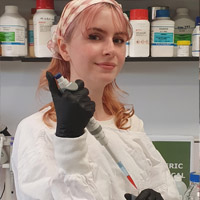
Alumni
Sophie McIntyre
Bachelor of Biomedical Sciences
I enjoyed the research experience in biomedicine so much that I pursued further immunology study through a Master of Philosophy. The abundance of practical laboratory experience was vital and the quality mentorship and guidance in the biomedical sciences degree certainly facilitated my success.
-
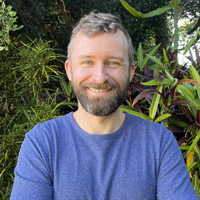
Lecturer
Andrew Calcino
Bachelor of Biomedical Sciences
The Bachelor of Biomedical Sciences is designed to launch the careers of the next generation, who will continue to push the boundaries of personalised medicine and healthcare. Students are trained to use the same tools and pipelines currently utilised by modern bioinformatic researchers.
-
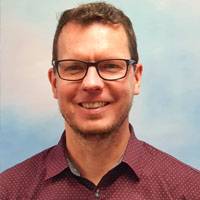
Lecturer
Associate Professor Ulf Schmitz
Bachelor of Biomedical Sciences
This interactive course structure, guided by the Centre for Tropical Bioinformatics and Molecular Biology, ensures that students receive the most relevant and up-to-date knowledge. The potential impact of their work on biodiversity, food production, tropical health, and more is extremely exciting.
-
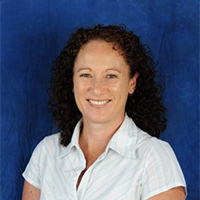
Employer
Megan Harbourne
Statewide Clinical Education Program Manager, Department of Health, QLD
JCU graduates have a really strong focus on the patient journey, probably because they have developed interpretation and analysis skills across multiple sciences. They are great at understanding the pathophysiology of the various chronic diseases that impact our patients.